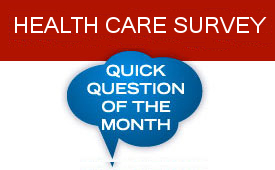Posted by CHPRE Staff
Presentations
Thursday, August 20th, 2009
This presentation took place on August 20, 2009 at the National Press Club in Washington, DC.
“The Role of Government in Health Care,” Health Affairs conference: Separating Fact from Fiction in the Health Reform Debate,” National Press Club, August 20, 2009.
Posted by CHPRE Staff
Presentations
Monday, August 10th, 2009
This presentation took place on August 10, 2009 at the US Department of HHS Office of Minority Health Conference .
“Health System Reform: Will It Reduce Disparities?” US Department of HHS Office of Minority Health Conference, August 10, 2009
Posted by CHPRE Staff
Publications
Saturday, August 1st, 2009
Introduction
Grand Junction, Colorado, is one of the lowest-cost, highest-quality health care systems in the country. A community of about 120,000 people on the western slope of the Rocky Mountains, its health care performance is on par with widely-admired high-performance integrated delivery systems like Mayo Clinic, Geisinger, Kaiser Permanente, the Billings Clinic, Denver Health, and Virginia Mason. Grand Junction does not have an integrated system; most of its health care payers and providers are unaffiliated, just like the majority of the country. Yet, this Colorado community boasts consistently excellent patient outcomes at relatively low cost. As policymakers develop national proposals to improve the quality, efficiency, and sustainability of our nation’s health system, it is instructive to study Grand Junction’s achievements.
As is true of the majority of markets in the country, Grand Junction has no formally integrated system; most of its healthcare payers and providers are unaffiliated with one another. Yet, Grand Junction engages in a community-wide effort that is far ahead of the curve in implementing a state-of-the-art health information technology network, which enhances care coordination and limits duplication. The community also boasts a high-functioning safety net system that works well with local doctors and hospitals and employs the latest innovations in primary, preventive, and palliative care.
Some news reports suggest that Grand Junction’s healthcare performance may be a geographic and historical anomaly, a product of charismatic leadership in a particular time and place that cannot easily be replicated.1 Questions have been raised about whether Grand Junction’s high-quality health system can be sustained because it is subject to the same forces that have pushed the nation’s health system to focus on maximizing revenue rather than delivering high-quality, patient-centered care.2 Some features of Grand Junction’s medical community may be unique. But it is also true that Grand Junction demonstrates that with a vision of mutual self-interest any community in the country can create and maintain a high-performance health system.
Grand Junction succeeds because of a deep sense of community, strengthened by data sharing and aligned incentives. The close-knit relationships among the lead actors and institutions can be characterized by their shared commitment to provide efficient, high-quality, and patient-centered care to all residents of Mesa County. Over the years, this has been made possible through aligned financial incentives to encourage the medical culture to focus on the needs of the greater community—and thrive. This commitment has led Grand Junction to become exceptionally cooperative by U.S. health system standards.
This paper aims to explain how this spirit of cooperation, aligned financial incentives, and overriding sense of common purpose combine to lower costs and improve outcomes. We hope that the example of Grand Junction can inspire other communities, including those that do not presently have an integrated delivery system, to discern and implement their own path to achieving far better performance, far more quickly than many voices in the national health reform debate now assume.
“Grand Junction Colorado: A Health Community that Works,” New American Foundation (August 2009)
Click here to view the article.



